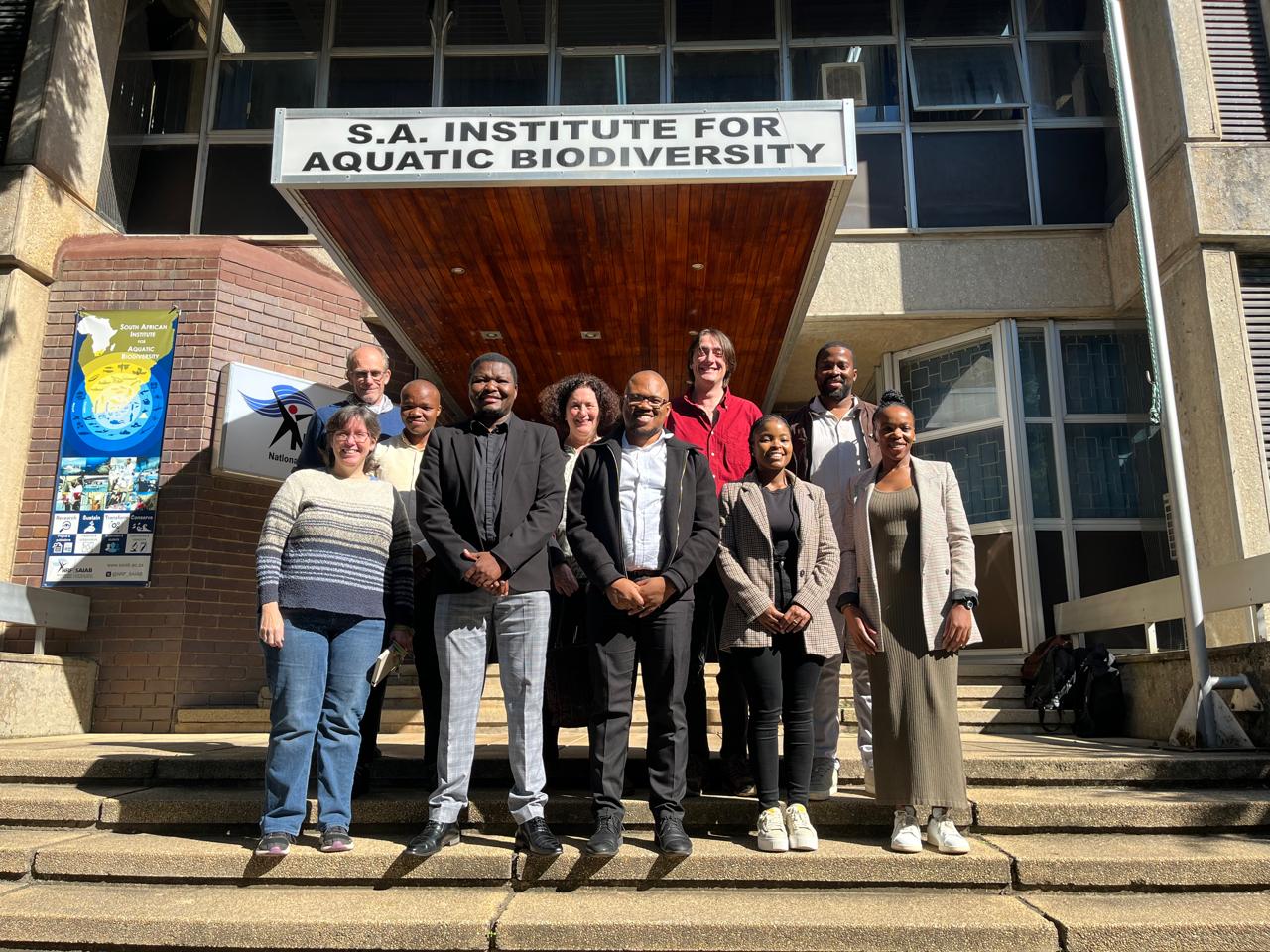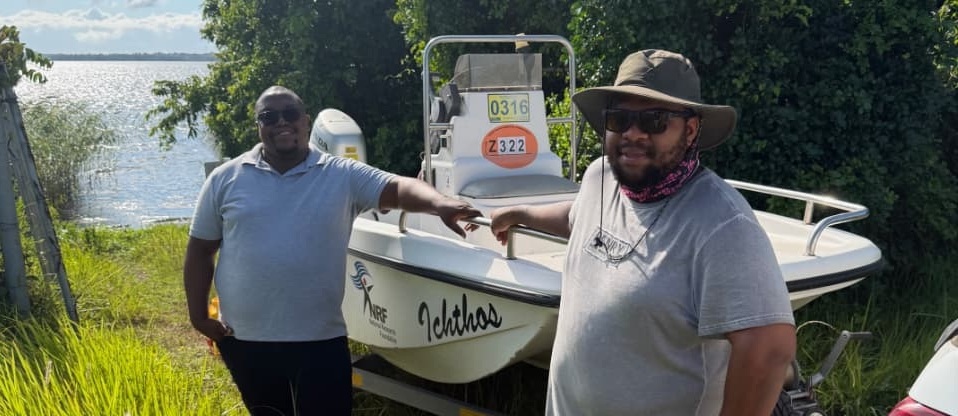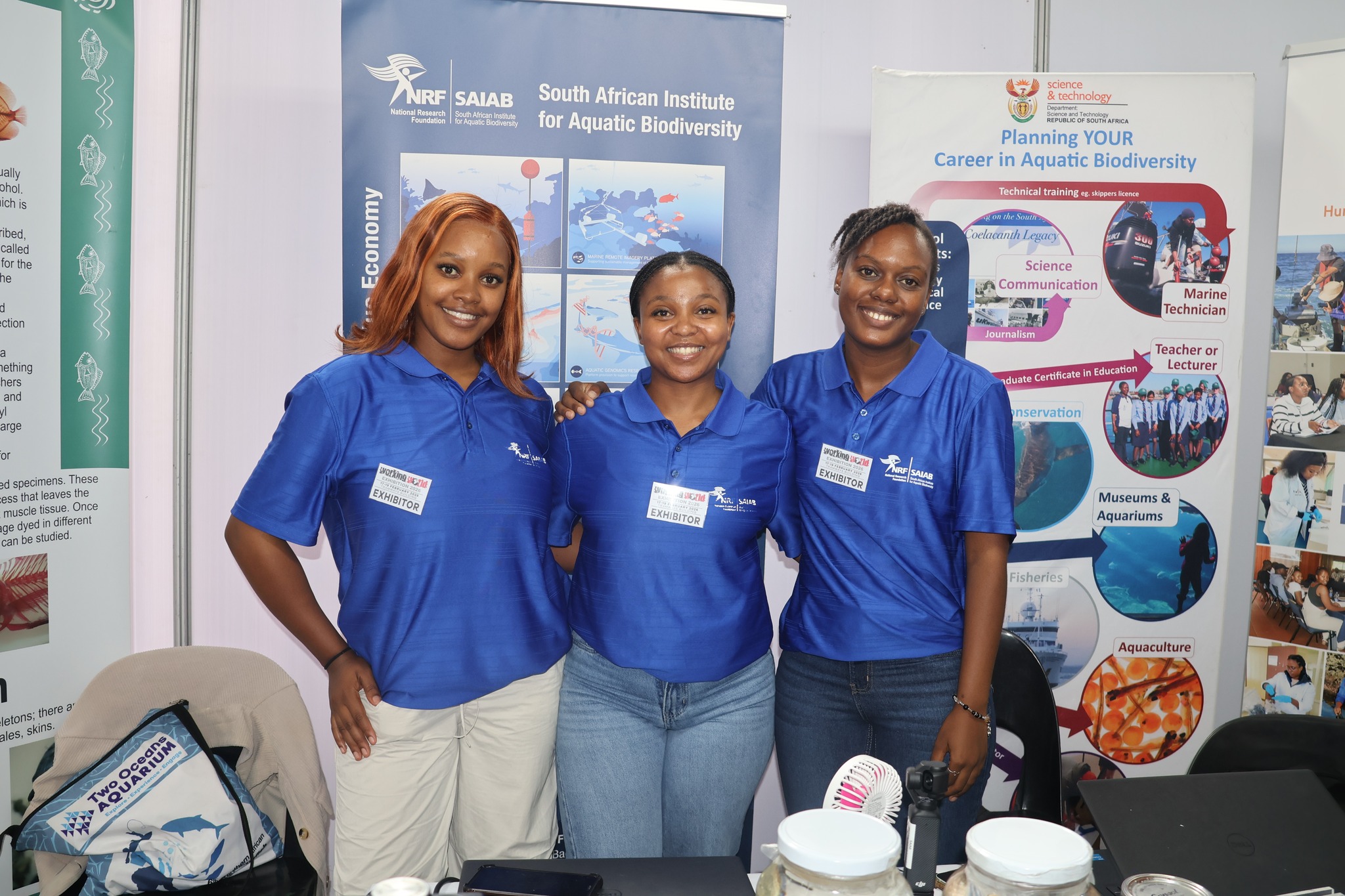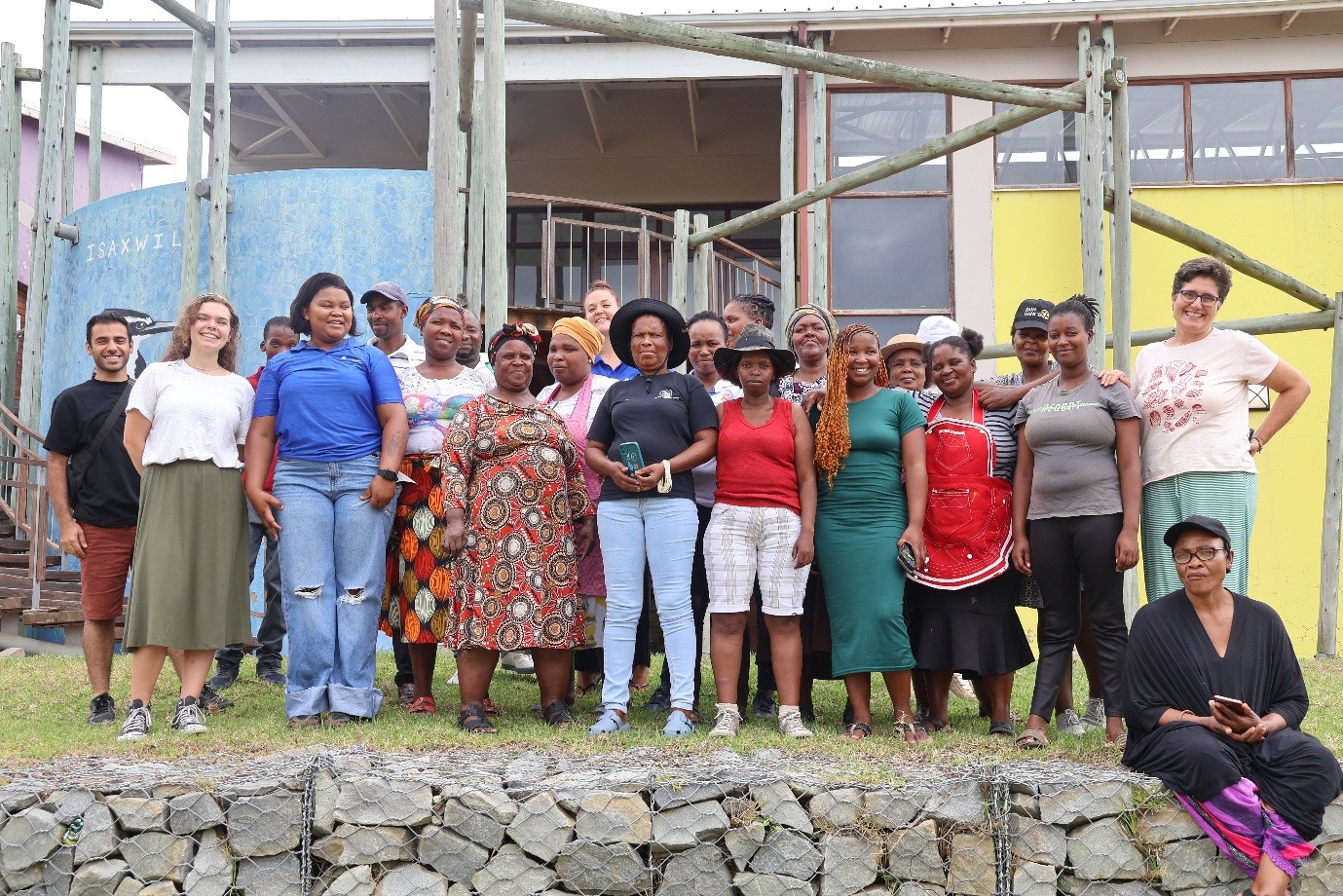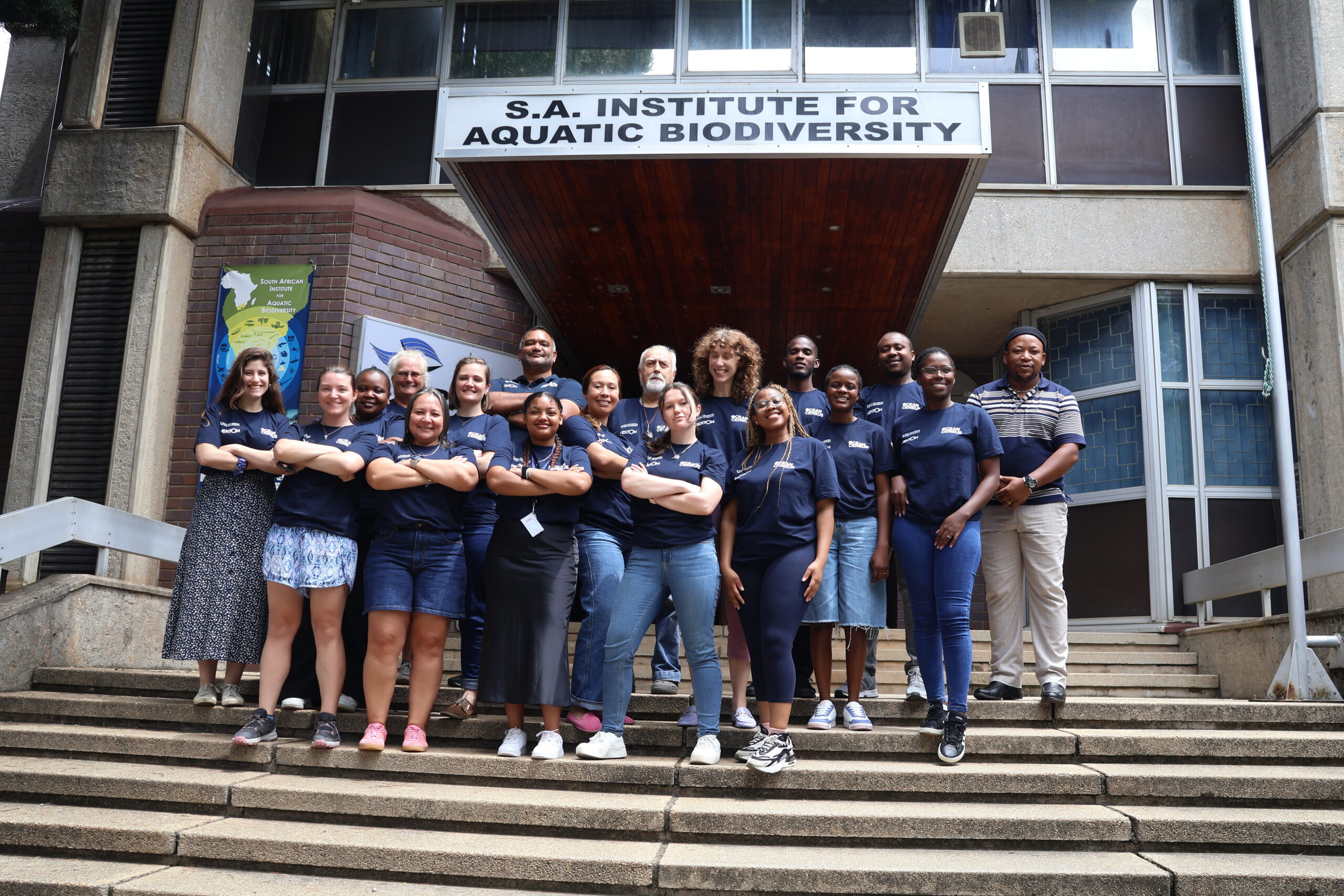On 7 May 2025, NRF-SAIAB’s Managing Director, Prof. Albert Chakona, hosted a high-level stakeholder engagement at the Institute’s Makhanda (Grahamstown) facility, welcoming Prof. Thulani Makhalanyane and the African Microbiome Group (AMG) from Stellenbosch University. This strategic meeting, attended by emerging and postdoctoral researchers from both institutions, aimed to explore synergies and collaborative opportunities in areas of mutual interest, including aquatic biodiversity, microbiology, genomics, and ecosystem health.
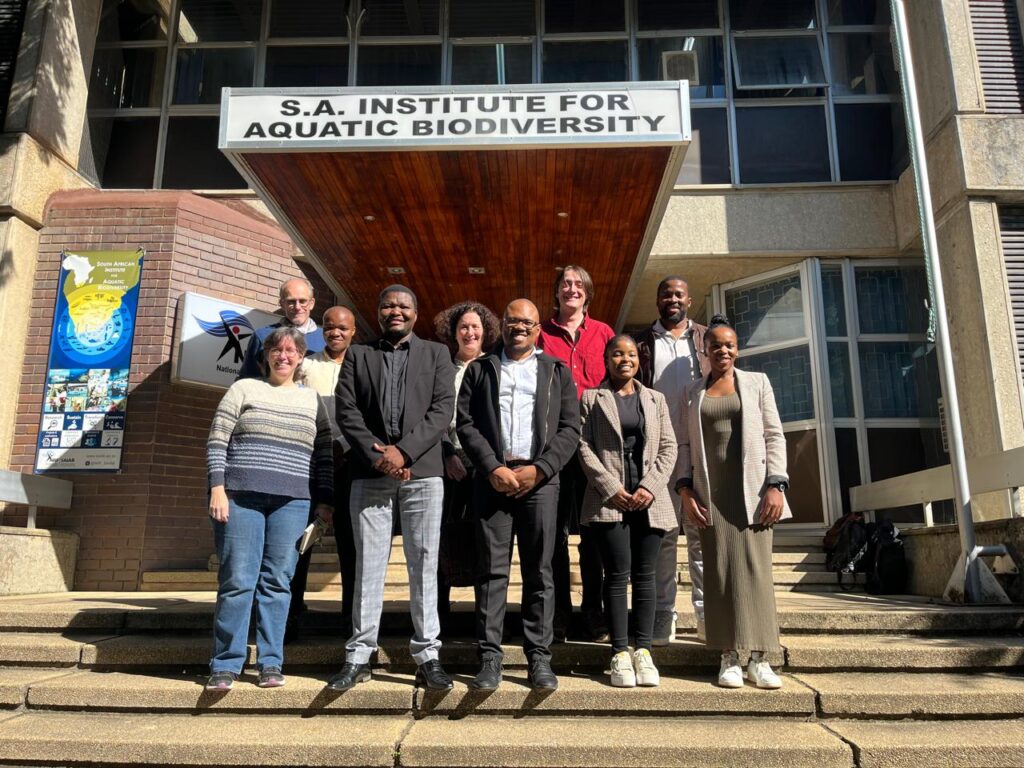
Back row (left to right): Roger Bills (NRF-SAIAB), Mayibongwe Buthelezi (AMG), Prof. Rosemary Dorrington (SA/UK Antibiotic Drug Discovery Hub – ADD Hub), Dr Nello Gregori, and Dr Sam Leareng (AMG), posing outside the NRF-SAIAB building.
The engagement focused on aligning the research priorities of NRF-SAIAB and AMG through potential joint research initiatives, student exchanges, data sharing frameworks, and the integration of microbiome science into aquatic research. Discussions also touched on the development of microbiome-linked indicators for freshwater contamination, and the need to communicate scientific insights more effectively to policymakers – particularly regarding water quality and public health challenges in rural communities.
Following the closed session, Prof. Makhalanyane and the African Microbiome Group delivered a public lecture on the NRF-SAIAB Seminar Series platform titled “How One Health Underpins the African Microbiome.” The talk highlighted the importance of microbial communities in ecosystem and human health, underscoring their relevance to the United Nations Sustainable Development Goals (SDGs). Drawing on studies from extreme environments such as the Southern Ocean and human gut microbiomes in urban and rural settings, the presentation made a compelling case for advancing mechanistic research on microbiomes as central components of a sustainable future.
On the second day of the visit, the team visited the SA/UK Antibiotic Drug Discovery Hub (ADD Hub) at Rhodes University. The ADD Hub, led by Prof. Rosemary Dorrington, has developed an end-to-end natural products drug discovery pipeline, in partnership with the NRF-SAIAB and NRF-SAEON. This pipeline facilitates the rapid assessment of chemical novelty and the isolation of hit compounds for antimicrobial drug development. The research team initiated important discussions aimed at establishing a collaborative programme to advance efforts in combating antimicrobial resistance by harnessing South Africa’s rich and unique marine biodiversity.
The visit concluded with a field excursion to the Bloukrans River – home to the iconic but highly threatened Eastern Cape rocky (Sandelia bainsii). “Once abundant and common in the Kowie River system, this endangered species has now experienced a dramatic decline in both population size and distribution range due to multiple environmental impacts. This outing reinforced the need for trans-, multi-, inter-, and intra-disciplinary efforts to address major environmental and societal challenges,” explained Prof. Chakona, who led the team on the excursion.
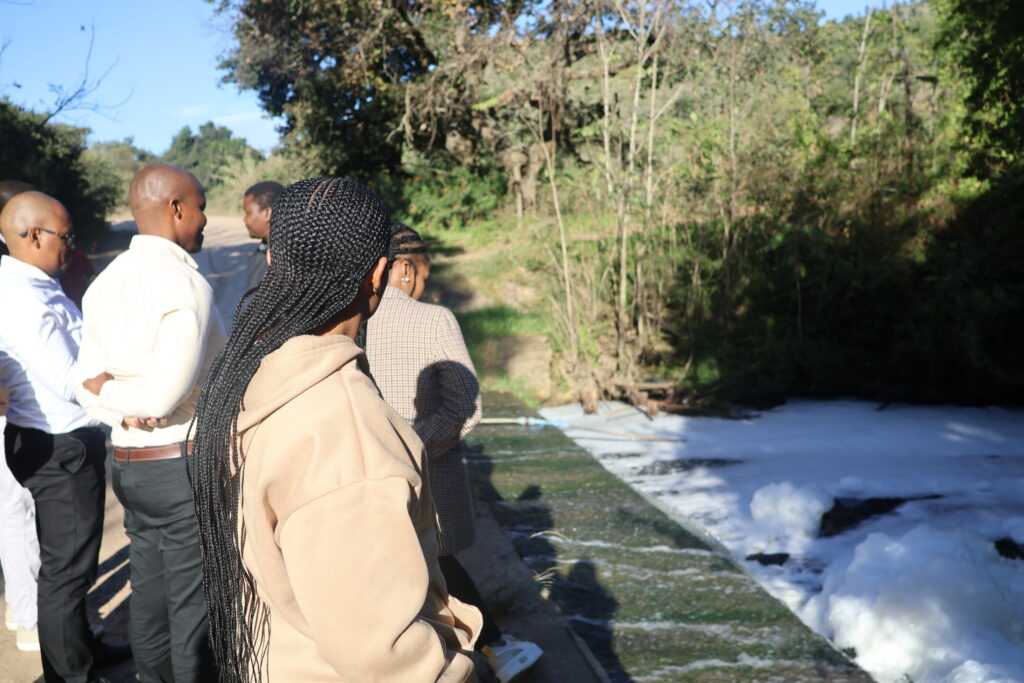
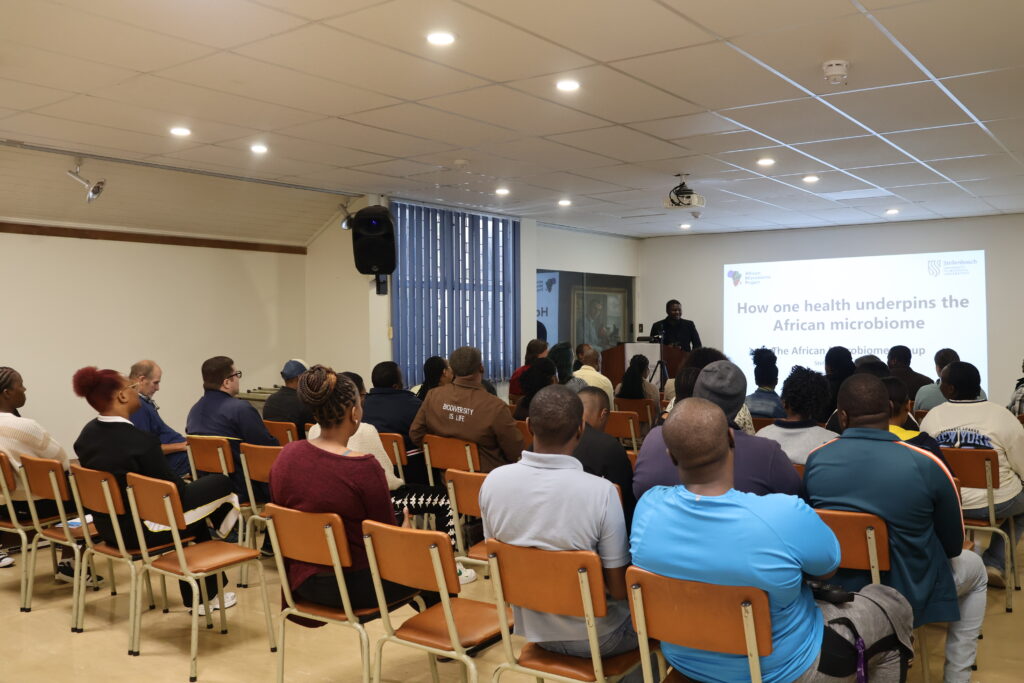
Key outcomes from the meeting include:
- Development of a collaborative project on water pollution and ecosystem services;
- Exploration of microbiome sequencing support and training;
- Plans to link aquatic research to the One Health framework;
- A proposed comprehensive survey of the Kowie catchment with a transdisciplinary focus;
- Joint efforts to raise public awareness and engage policymakers on water quality issues.
This engagement marked a critical step toward interdisciplinary research that bridges microbiome science with aquatic biodiversity and ecosystem health, reinforcing NRF-SAIAB’s commitment to collaborative, impactful science.
